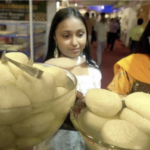Who is putting the price on education?
I was just reading Anna Tsing’s ‘Sorting out commodities: How capitalist value is made through gifts’ paper, when the section about the ‘barely’ commoditized world of scholarship reminded me of the period of the COVID-19 Pandemic when groups of students were demanding partial refunds of their university tuition fees as they were unhappy with the quality of online teaching. It also reminded me of my own experience of applying to university in a year when one out of every ten applicants to a certain Russell-Group university received an unconditional offer if they secured the university as their first choice.
The connecting factor between these two instances is that they highlight the way in which tuition fees have arguably commoditized university education in the UK. On one hand there is the institution that provides ‘incentives’ (unconditional offers) for students to select them against their market competitors (i.e. other universities), treating students as potential clients. On the other there is the student awareness of the fact that they have effectively bought (albeit after fulfilling specific requirements of achievement) their education through tuition fees. When it doesn’t measure up to their expectations – such as when online tuition is given that they do not consider to be satisfactory – they demand a refund as the promised goods have not been delivered, reifying a client-provider relationship.
Higher education is somewhat paradoxical. The course fees are clearly set, the process of taking out a government loan to pay these fees has been streamlined and normalised – even institutionally, as I remember being taught how to apply for a student loan at school. However, there is also the transcendental ideal of education that posits itself as above exchange value: the pricelessness of seeking knowledge and academic enrichment. The understandable furore that arose from some professors and staff members when students demanded tuition fees back in 2021 is testament to this ideal and the resistance to being commoditized. This also harks back to Tsing’s point about the flow between gift and commodity states (as somewhat falsely dichotomised), with her example of the teacher who goes beyond the lesson in a sense giving a gift. The upset of some higher education professors and staff is understandable in this sense – education has a clear monetary price and is in this sense a commodity, but it is also seen to transcend this value.
From rankings tables of universities, websites dedicated to drop-out rate statistics and detailed listing of the amount of money spent per student at different universities, elements of higher education have arguably been commoditized even prior to the price tag – rendered commensurate through statistical comparison and fairly arbitrary score-giving. Perhaps one cannot blame students for demanding their money back when university is advertised to them in the language of the market.
Contributed by AnnaGunstone on 24/01/2022






